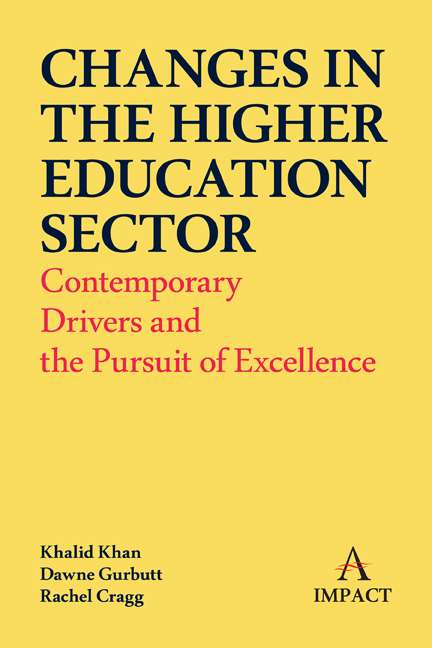Chapter 4 - Methodologies for Improving Teaching Excellence
Published online by Cambridge University Press: 13 May 2022
Summary
It should be universally understood that there is a moral obligation on all Higher Education Institutions (HEIs) to provide their students with the highest quality of teaching standards possible. In countries where students must pay for their own Higher Education (HE), students are investing significant amounts of their own time and money in their HE studies and therefore they are customers expecting the highest quality academic experience in return. Before 1998, in the United Kingdom, HE was free for all students continuing to study for their first degree at the undergraduate level. A radical political shift in educational ethos in 1998 introduced student fees and loans. With this substantial level of personal investment, surely students must be entitled to value for money when it comes to the teaching quality they receive throughout the duration of their studies. This resulted in the introduction of the teaching quality assessment process across the HE sector: the Teaching Excellence Framework (TEF). This move to the marketisation of HE is not just a UK phenomenon but can be seen across many countries around the world and has resulted in the production of league tables for research and teaching along with ‘student satisfaction’ rates; these metrics are having a greater impact when it comes to institutions competing for student numbers. Clearly, now there is a greater emphasis than ever before on the teaching quality of universities, and it is vitally important to be able to measure accurately teaching excellence within the HE sector.
A contentious issue within HEIs is the notion of what constitutes ‘teaching excellence’ and more importantly if it can be measured. HE by its very nature provides a diversity of learning opportunities to students depending on the various disciplines studied from courses that are highly vocational in nature to the more theoretically based subjects. If teaching quality is to be measured, it could be more appropriately achieved through qualitative rather than quantitative measures. It may be possible to capture the main features, describe them and then use a guide to make judgements of what teaching excellence represents. From empirical studies carried out within HE, it is considered that an excellent teacher should be one that has the following attributes (Wood and Su, 2017; Kreber, 2002):
• Excellent knowledge of the subject matter
• Able to convey concepts easily
- Type
- Chapter
- Information
- Changes in the Higher Education SectorContemporary Drivers and the Pursuit of Excellence, pp. 39 - 56Publisher: Anthem PressPrint publication year: 2022

